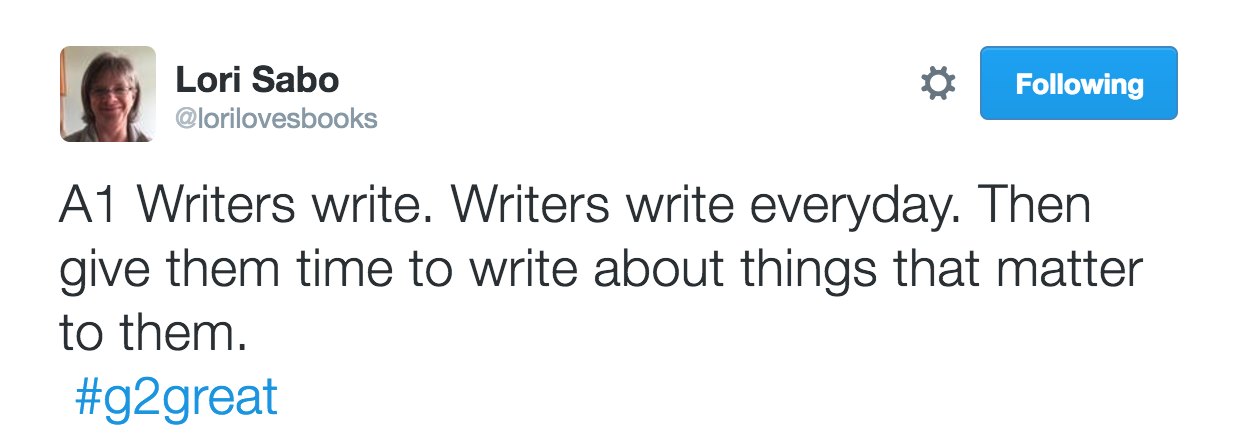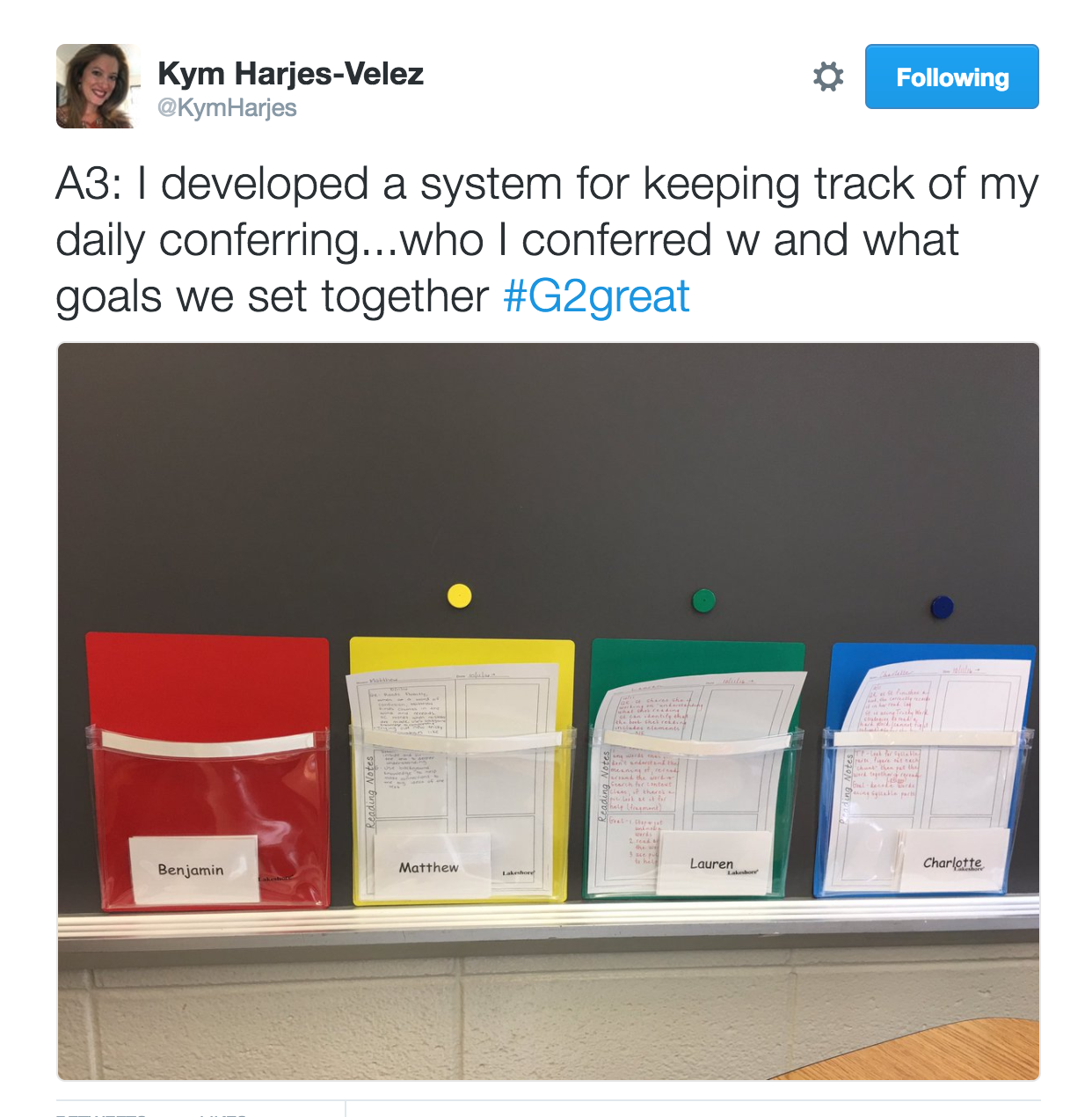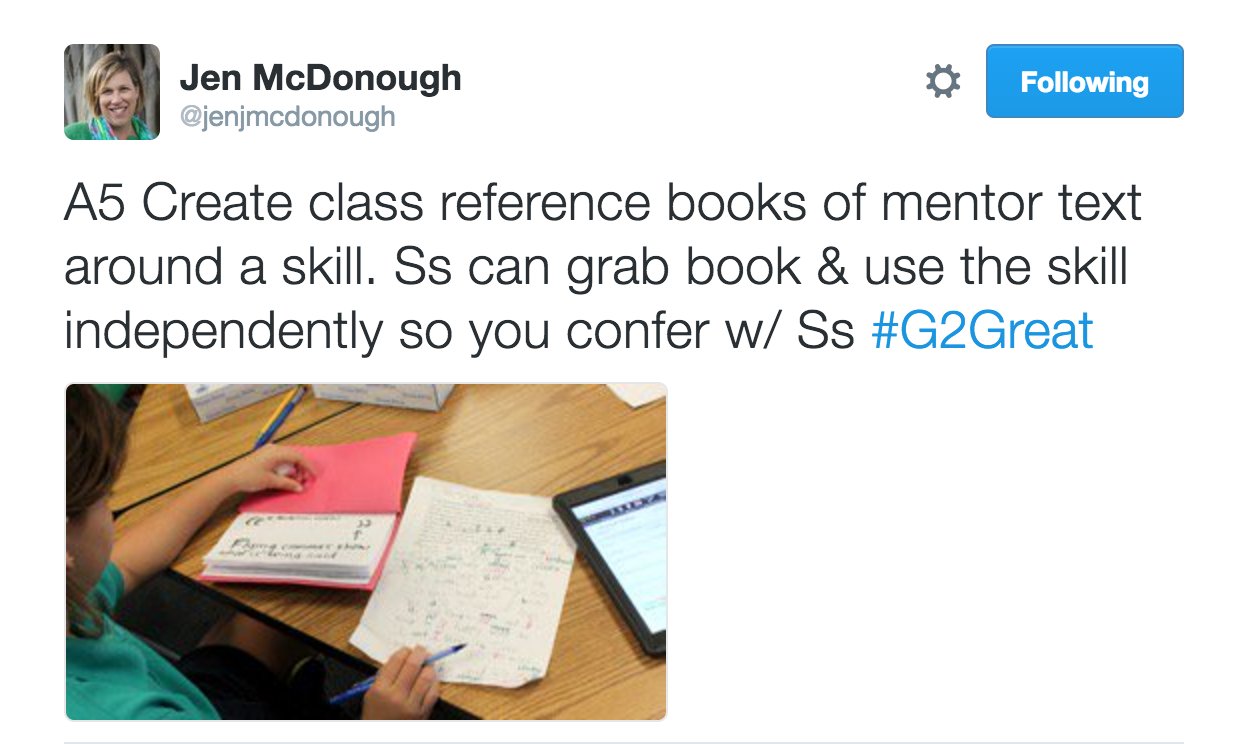By, Jenn Hayhurst
On October 27, 2016 #G2Great celebrated Kristin Ackerman and Jen McDonough’s beautiful new book, Conferring with Young Writers What to Do When You Don’t Know to Do. Kristin and Jen’s work brought us together to think deeply about what young writers need, and how to tap into conferring to encourage independence.
During the chat I imagined teachers everywhere thinking about conferring and the writing process as they dedicated more of their lives to the art of teaching. I am struck by an overwhelming sense of well-being as I think of all these literacy leaders who are pushing themselves to learn long after the school day has ended. I truly believe that educators who actively read and write every day are a force for good in an otherwise challenging world.
We read. We write. We grow…
Writers need...
Lori Sabo ( reminded us that “writers write” and that we all need to take time to devote energy to the actual act of writing. Her words of wisdom reached out to us, asking us all to remember that any literacy learning begins and ends in the service of comprehension:
Living a writerly life…
What can we do to build routines and structures for writing? Linda Hoyt suggested that we should practice what we preach. If our students need to write then so do we. We can all be writing role models who work in partnerships with our students, showing them how to be resilient writers who understand how to work through struggle:
Structures for Conferring…
The chat moved into a bigger discussion about how we organize our instructional day to support conferring. Kym Harjes-Velez shared her system with us. Conferring may be complex but classroom structures can be easily managed and simple to keep up:
Growth…
Jessica Maffetone reminded us all that learning to become a writer is a process that is completely aligned with growth. The beautiful thing about writing is that as we confer with our students we see their skill develop over time. It is both introspective and collaborative at the same time. Kristin and Jen never promised us that this work would be easy, but this is what teaching is all about:
Independence…
There are many pieces that make conferring work well. We know that being a keen “kidwatcher” is an essential skill that we grow over time. Jen McDonough focused the conversation on another important piece, having tools at the ready to help students become independent once the conference ends:
Learning…
As Kitty Donohoe so wisely observed, learning and agency go hand-in-hand. We really do learn best in the company of others. A collaborative and creative process is the mainstay of the world our young writers will inherit. Their work becomes meaningful when we create environments that that are built around community and work:
Kristin Ackerman added onto this thinking when she shared how they are using students’ reflections as another great teaching tool:
Mentors…
When we celebrate student writing as mentors we are elevating our own practice. Courtney Kinney shared how she uses student writing to teach others. It is so true that we are at the pinnacle of our practice when we use students’ work to teach. Having student writing on hand as we confer places their voices at the center of the writing workshop, it sends the message their work matters and has an impact:
Thank you Kristin and Jen. Your book really got the conversation going and made us all think of the power that skilled teachers can bring to conferring. You reminded us that our conferring work builds community through strong relationships. As I end this post I think about our growing #G2Great PLN. We are teachers, we are administrators, we are authors, and we are all dedicated to the art of teaching as we keep our students at the center of all that we do.








